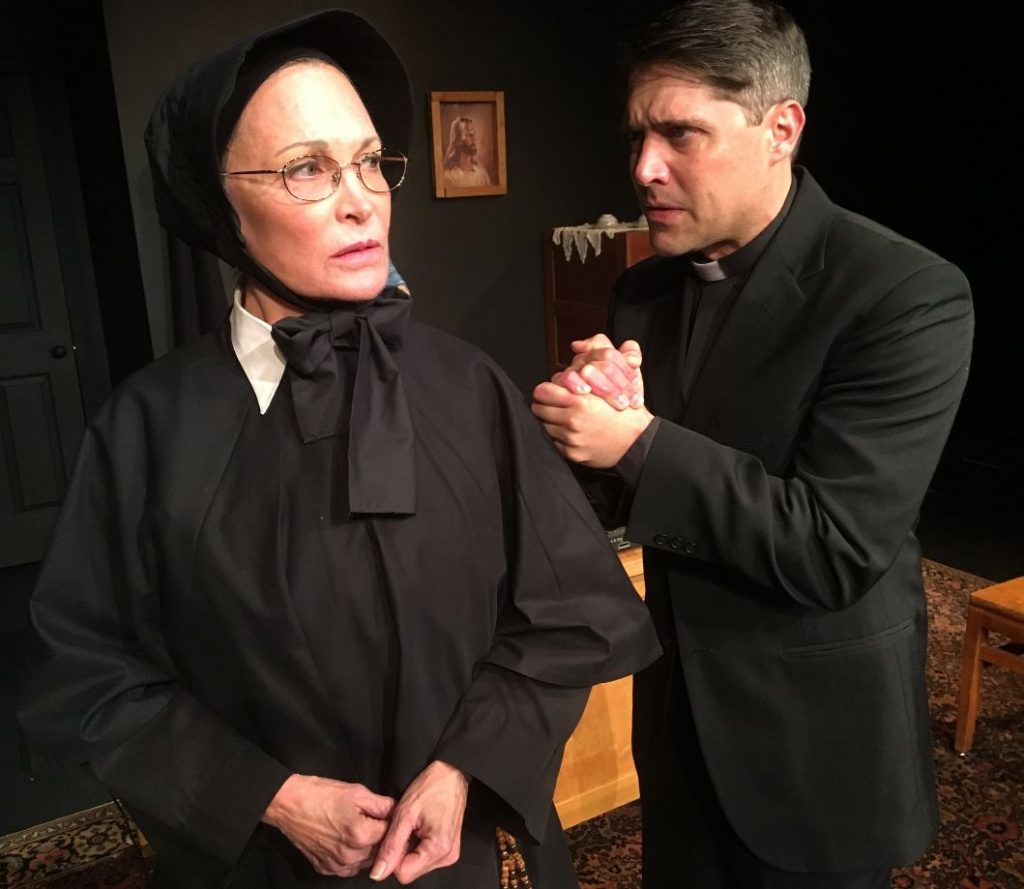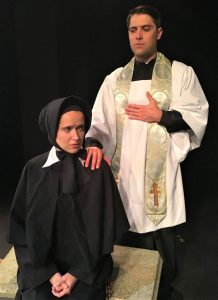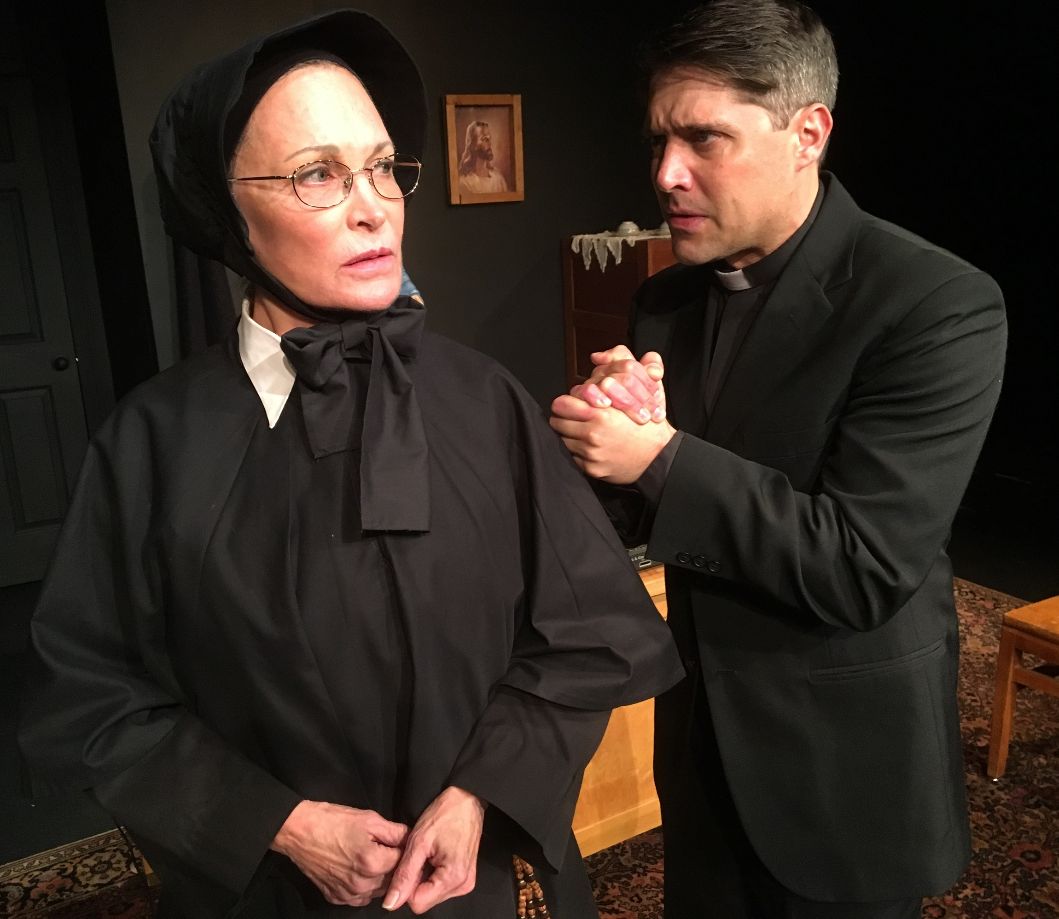
This is the road Sister Aloysius appears to be on in the play Doubt. Playwright John Patrick Shanley created Doubt, which had a run on Broadway lasting 525 performances. In 2005 it won the Tony Award for Best Play and the Pulitzer Prize for Drama.
The sister, a principal of a Catholic school, spouts aphorisms like a cannon fires balls. “Your wits must be cold,” she tells the youthful teacher Sister James. “Innocence can only be wisdom in a world without evil.”
The evil she sees in her own little world is embodied in parish priest Father Brendan Flynn, who she suspects of having unnatural relations with a young black student, the only one in an otherwise all-white school.
“The little sheep lagging behind is the one the wolf goes for,” she sternly warns Sister James. This parable of the wolf in the fold in just one of several interlocking parables that give the play a disturbing quality far beyond what a simple reading of its text might suggest.
Why Sister Aloysius has reached such a pinnacle of doubt must be sought in her past life, only briefly outlined. It was highly unusual for a previously married woman to become a nun in the post-World War II period, but this was her path after the battle death of her husband. To somehow punish herself for his death, it became her goal to make herself more unhappy, and to make everyone else miserable too.

As one theatre-goer told me, the final showdown between the priest and his accuser gathered up all the oxygen in the room and really electrified it. He found it more impactful than the film version, starring Meryl Streep.
The play provides no definitive answer, which makes the play so effective. We want the question, but not the answer. In terms of a theatrical performance it thus provides an engaging forum for thought and discussion. It is to Shanley’s credit that such a succinct dramatic piece can pack such a punch. The message is delivered near the outset of the play: “Doubt can be a bond as powerful and sustaining as certainty.”
Guest director Rick Roemer was lucky to have one of Austin’s most accomplished actors Babs George as Sister Aloysius Beauvier, who delivers a bravura performance of both certainty and doubt. Joel Gross (Father Flynn), Brooke Culbertson (Sister James), and the boys’ mother April Patterson (Mrs. Muller) create an ensemble cast that does great justice to this landmark play, even more relevant in 2018 as the Catholic Church grapples with a worldwide scandal that makes headlines daily.
Doubt is at the Trinity Street Theatre in downtown Austin until Nov. 25, 2018.
Details at: www.citytheatreaustin.org
Photo credit: Andy Berkovsky and Desi Roybal.
